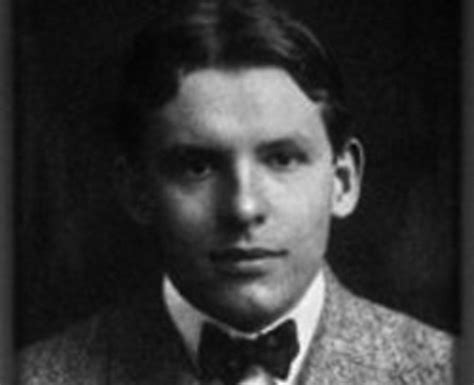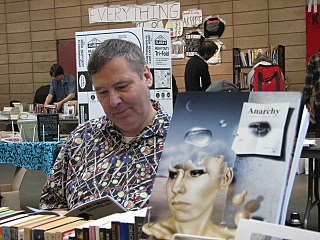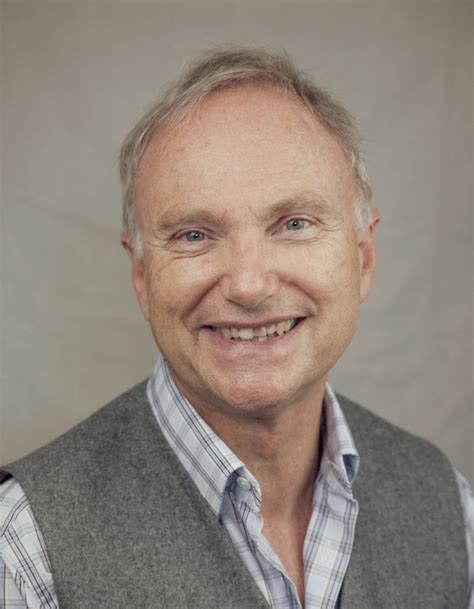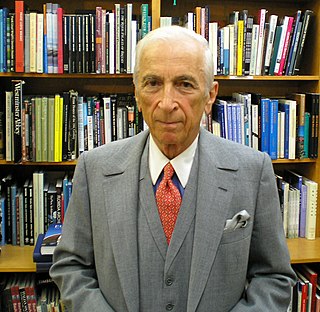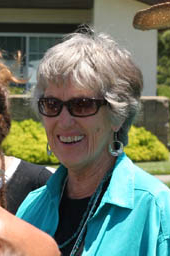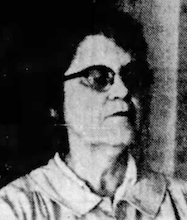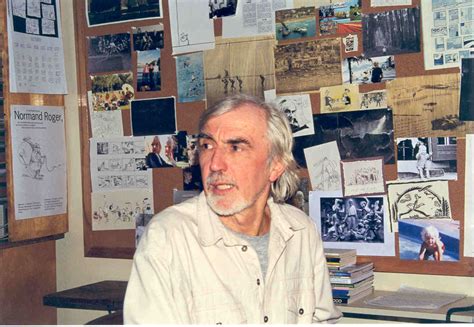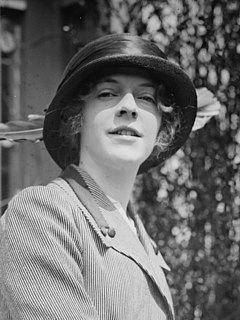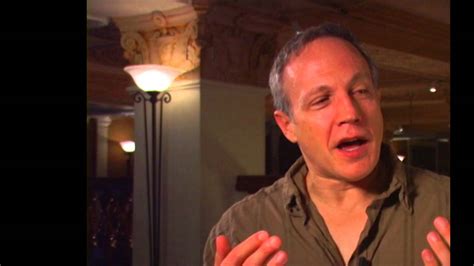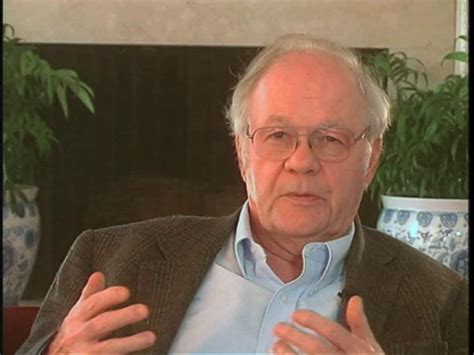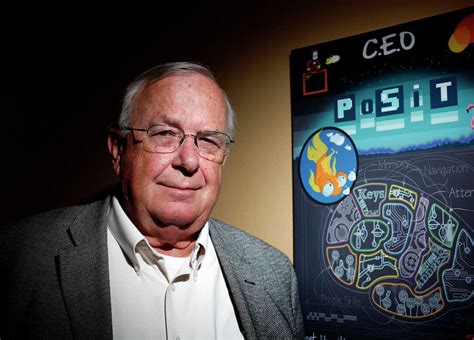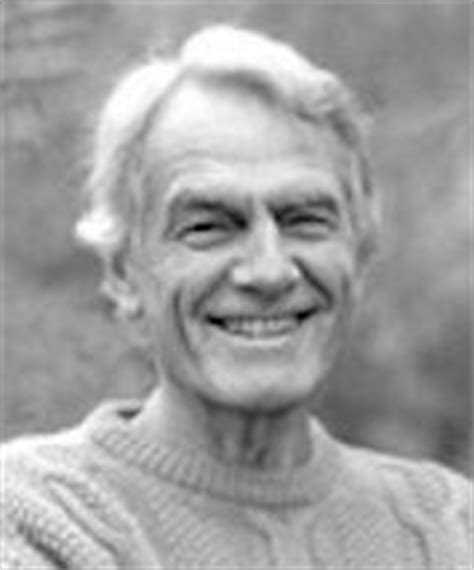Top 491 Sensory Deprivation Quotes & Sayings - Page 8
Explore popular Sensory Deprivation quotes.
Last updated on November 16, 2024.
As modern-day neuroscience tells us, we are never in touch with the present, because neural information-processing itself takes time. Signals take time to travel from your sensory organs along the multiple neuronal pathways in your body to your brain, and they take time to be processed and transformed into objects, scenes, and complex situations. So, strictly speaking, what you are experiencing as the present moment is actually the past.
Esse est percipi, to be is to be perceived, said good old Berkeley; but, according to most philosophers, he was wrong. Yet, obviously, there are things for which the adage holds. Perception, trivially, to begin with. If elements of conscious awareness--pains, tickles, feelings of heat and cold, sensory qualia of colors, sounds, and the like--have any existence, it must consist in their being perceived by a subject.... This shows, of course, that such experiences are epiphenomenal, at least with respect to the physical world.
[Libertarians] don't denounce what the state does, they just object to who's doing it. This is why the people most victimized by the state display the least interest in libertarianism. Those on the receiving end of coercion don't quibble over their coercers' credentials. If you can't pay or don't want to, you don't much care if your deprivation is called larceny or taxation or restitution or rent. If you like to control your own time, you distinguish employment from enslavement only in degree and duration.
The United States remains the last best hope for a mankind plagued by tyranny and deprivation. America is no stronger than its people -- and that means you and me. Well, I believe in you, and I believe that if we work together, then one day we will say, "We fought the good fight. We finished the race. We kept the faith." And to our children and our children's children, we can say, "We did all what could be done in the brief time that was given us here on earth.".
Spiritual science attempts to speak about non-sensory things in the same way that the natural sciences speak about sense-perceptible things...No one can ever deny others the right to ignore the supersensible, but there is never any legitimate reason for people to declare themselves authorities, not only on what they themselves are capable of knowing, but also on what they suppose cannot be known by any other human being.
There are many facts within fiction. This captivating story provides invaluable insights into the childhood of a girl who has Asperger’s syndrome. Fiction allows the author to explore different perspectives and add poignancy to the experiences of sensory sensitivity and being bullied and teased of someone who has Asperger’s syndrome. The title Delightfully Different describes Asperger’s syndrome but also the qualities of this novel.
When you feel discouraged or simply lazy, as is bound to happen sometimes, remember the millions of people in the world who have not had your privilege. Remember the poor and obscure lives of those countless millions who suffer from every sort of deprivation and frequently find themselves the unwilling victim of wars, and a variety of cruelties, perpetuated by man on man. Is it not significant that the first bid for self realization, among the poor and downtrodden, is to assert their right to education?
In Lords of Rainbow I start out by taking away color from the world, and in the process show color's vital place in our lives. At least I hope that by the end of the book it's a portion of what the reader comes away with - a sense of how much color perception enriches our lives and how its lack can make our sensory experience incomplete.
He believed that all people existed behind varying layers of armor which, like the archaeological layers of earth itself, reflected the historical events and turbulence of a lifetime. An individual's armor that had been developed to resist pain and rejection might also block a capacity for pleasure and achievement, and feelings too deeply trapped might be released only by acts of self-destruction or harm to others. Reich was convinced that sexual deprivation and frustration motivated much of the world's chaos and warfare.
Sensory experience does not offset the intense pain or pleasure we feel on a mental level; it may distract us, but doesn't overcome it. On the other hand, if we have peace of mind, even negative experiences do not upset us. Peace of mind is also good for our physical health. Medical experts have found that anger, hatred and fear eat into our immune system. Being calm and relaxed is better for our physical well-being.
Capitalism has created a situation called scarcity. And that scarcity is not natural, it's socially induced. Along with that sense of scarcity, or feeling of scarcity, is a feeling of economic insecurity. Along with that is a feeling of deprivation... And unless we can demonstrate that that feeling is not justified technologically, we will not be able to speak intelligently to the great majority of people and reorganize our economy so that we really know what needs are rational and human and what have been created, almost fetishisticaly, by the capitalist economy.
The refusal to feel takes a heavy toll. Not only is there an impoverishment of our emotional and sensory life, flowers are dimmer and less fragrant, our loves less ecstaticâ but this psychic numbing also impedes our capacity to process and respond to information. The energy expended in pushing down despair is diverted from more creative uses, depleting the resilience and imagination needed for fresh visions and strategies.
…Forgive us, O Lord, we acknowledge ourselves as type of the common man, Of the men and women who shut the door and sit by the fire; Who fear the blessing of God, the loneliness of the night of God, the surrender required, the deprivation inflicted; Who fear the injustice of men less than the justice of God; Who fear the hand at the window, the fire in the thatch, the fist in the tavern, the push into the canal, Less than we fear the love of God.
Other than his ex-wife and despite appearances with a series of cultivated blondes, Edward de Bono has never publicly aligned himself with a woman. 'I’m looking for a fat, cross-eyed hunchback,' he explains, stifling a giggle. 'A prosthetic hump would do.' His delight evaporates when asked about his three grandchildren. 'Am I a doting grandfather?' He pauses. 'I’m a … something grandfather, yes.' The fact that De Bono remains unperturbed by this lack betrays an emotionally austere childhood, and his passions for play, toys, and bad jokes tell of the same deprivation.
Cognitive states of mind are seldom addictive, since they depend upon exploration of the world, and the individual encounter with the individual object, whose appeal is outside the subject's control. Addiction arises when the subject has full control over a pleasure and can ponder it at will. It is primarily a matter of sensory pleasure, and involves a kind of short-circuiting of the pleasure network. Addiction is characterized by a loss of the emotional dynamic that would otherwise govern an outward-directed, cognitively creative life.
In the new science of the twenty-first century, not physical force but spiritual force will lead the way. Mental and spiritual gifts will be more in demand than gifts of a physical nature. Extrasensory perception will take precedence over sensory perception. And in this sphere woman will again predominate.
Too often in the past, we have thought of the artist as an idler and dilettante and of the lover of arts as somehow sissy and effete. We have done both an injustice. The life of the artist is, in relation to his work, stern and lonely. He has labored hard, often amid deprivation, to perfect his skill. He has turned aside from quick success in order to strip his vision of everything secondary or cheapening. His working life is marked by intense application and intense discipline.
I think that metaphor really is a key to explaining thought and language. The human mind comes equipped with an ability to penetrate the cladding of sensory appearance and discern the abstract construction underneath - not always on demand, and not infallibly, but often enough and insightfully enough to shape the human condition. Our powers of analogy allow us to apply ancient neural structures to newfound subject matter, to discover hidden laws and systems in nature, and not least, to amplify the expressive power of language itself.
It is not possible to provide evidence of life after death to the five senses anymore than it is possible to provide the five senses with evidence of non-physical reality. It cannot be done. The five senses; sight,hearing, taste and smell together form a single sensory system whose object of detection is physical reality. This cannot detect non-physical reality. Humankind is beginning to be able to access data the 5 senses cannot provide.
You know, mind allows us to portray in different sensory modalities, visual, auditory, olfactory, you name it, what we are like and what the world is like. But this very, very important quality of subjectivity, this quality that allows us to take a distant view and say, "I am here, I exist, I have a life and there are things around me that refer to me." That me-ness, M-E-hyphen, that is what really constitutes consciousness.
Life would be impossible on such a planet. It wouldn't get enough heat and light, and if it rotated there would be total darkness half of every day. There wouldn't be any native inhabitants. You couldn't expect life - which is fundamentally dependent on light - to develop under such extreme conditions of light deprivation. Half of every axial rotation spent in Darkness! No, nothing could exist under conditions like that.
Virtues are in the middle, the royal way about which the saintly elder (Saint Basil the Great) said, "Travel on the royal way and count the miles." As I said, the virtues are at the midpoint between excess and laxness. That is why it is written, "Do not turn to the right or the left" (Prov 4:27) but travel on the "royal way" (Num. 20:17). Saint Basil also says, "The person who does not allow his thoughts to incline towards excess or deprivation but directs it to the midpoint, that of virtue, is upright in heart."
If I regarded my life from the point of view of the pessimist, I should be undone. I should seek in vain for the light that does not visit my eyes and the music that does not ring in my ears. I should beg night and day and never be satisfied. I should sit apart in awful solitude, a prey to fear and despair. But since I consider it a duty to myself and to others to be happy, I escape a misery worse than any physical deprivation.
I studied a lot of animal behavior and one of the things I find really interesting is the whole idea that animals are sensory based thinkers and I wrote about this in my book, Animals in Translation. That an animal's memory is not in words, they've got to be in pictures - it's very detailed so let's say the animal gets afraid of something - they'll get afraid of something that they're looking at or hearing, the moment the bad thing happens.
Religion is an attempt to get control over the sensory world, in which we are placed, by means of the wish-world, which we have developed inside us as a result of biological and psychological necessities... If one attempts to assign to religion its place in man's evolution, it seems not so much to be a lasting acquisition, as a parallel to the neurosis which the civilized individual must pass through on his way from childhood to maturity.
We often wonder why God gives and takes, constricts and expands. What we forget is that human beings understand things by their opposites. Without dark, we can’t understand light. Without hardship, we wouldn’t *experience* ease. Without the existence of deprivation and loss, we couldn’t grasp the need for gratitude or the virtue of patience. And without separation, we wouldn’t taste the sweetness of reunion. Glory be to the one who gives—even when He takes.
Had today's technophobic zealots [environmental activists] been in charge in previous centuries, we would have to roll human progress back to the Middle Ages - and beyond, since even fire, the wheel and organic farming pose risks, and none would have passed the "absolute safety" test the zealots demand. Putting them in charge now would mean an end to progress, and perpetual deprivation for inhabitants of developing nations.
Self-interest and mutual interest are inextricably linked. National interests can best be advanced through collective action, ... Calculate not just the human misery of the poor themselves. Calculate our loss: The aid, the lost opportunity to trade, the short-term consequences of the multiple conflicts; the long-term consequences on the attitude to the wealthy world of injustice and abject deprivation amongst the poor.
A Resource-Based Economy is in the application of the methods of science with human concern and environmental concern. If we used the scientific method throughout the world, the probability of war drops to zero. The probability of human suffering disappears. Deprivation, poverty, crime - all those things tend to disappear because there's no basis. I'm strictly concerned with the environment that people are raised in and if that environment is altered, so will behaviors be altered.
Elizabeth Taylor is, in my opinion, the greatest actress in film history. She instinctively understands the camera and its nonverbal intimacies. Opening her violet eyes, she takes us into the liquid realm of emotion, which she inhabits by Pisces intuition. Richard Burton said that Taylor showed him how to act for the camera. Economy and understatement are essential. At her best, Elizabeth Taylor simply is. An electric, erotic charge vibrates the space between her face and the lens. It is an extra-sensory, pagan phenomenon.
I see now how things even up, how they are squared away, and how they balance under the law of love and justice. No year of life is emotionally, spiritually or even materially, all drought or all rainfall; nor is it all sun. The road turns a little every day, and one day there's a sudden twist we didn't dream was there, and for every loss there is somewhere a gain, for every grief a happiness, for every deprivation a giving.
In the event of a violent revolution, we would be sorely outnumbered. And when it was all over, the Negro would face the same unchanged conditions, the same squalor and deprivation-the only difference being that his bitterness would be even more intense, his disenchantment even more abject. Thus, in purely practical as well as moral terms, the American Negro has no rational alternative to nonviolence.
About writing I learned that always, always, always it's necessary to haunt your settings. I'm a big researcher. All my fiction is based on tons of digging. But the vital importance of actually traveling to the settings of a novel really hit me. And it's not just the setting details, not just the visuals and other sensory data, that will pop. You'll find surprising clues that swerve your story in whole new, deeper, surprising, more organic ways.
Creativity does not belong exclusively to professional artists and geniuses; it is the birthright of every single human being. Creativity is our common heritage. You don’t need to quit your job and move to Paris in order to lay claim to this heritage - all you have to do is clear some space in your life for whimsy, invention, sensory pleasure, and play. Most of all, you have to learn how to follow your curiosity more than your fear.
Given Freudian assumptions about the nature of children and the biological predestination of mothers, it is unthinkable for mothers voluntarily to leave their babies in others' care, without guilt about the baby's well-being and a sense of self-deprivation. Mothers need their babies for their own mental health, and babies need their mothers for their mental health--a reciprocal and symbiotic relationship.
Tools arm the man. One can well say that man is capable of bringing forth a world; he lacks only the necessary apparatus, the corresponding armature of his sensory tools. The beginning is there. Thus the principle of a warship lies in the idea of the shipbuilder, who is able to incorporate this thought by making himself into a gigantic machine, as it were, through a mass of men and appropriate tools and materials. Thus the idea of a moment often required monstrous organs, monstrous masses of materials, and man is therefore a potential, if not an actual creator.
There's no way in which you can ever win a war against terror. As long as there are conditions in many parts of the world that make people desperate: poverty, disease, ignorance, etc. I hope that we will discover soon, that we can survive, only together. We can prosper only together. And I think people are beginning to realize this, that you can't have pockets of prosperity in one part of the world and huge deserts of poverty and deprivation and think you can have a stable, secure world.
If a tablet is not wiped clean of it's figures, nothing can be written upon it. A single heart cannot serve as the place for two things, let alone for several things. If the heart is filled with the forms of sensory perceptions, it is rare that it would perceive the meaning of Allah, even if one were to say Allah a thousand times. When the heart is empty of all that is other-than-God, if one uttered Allah only once, one would find such bliss that the tongue could not describe.
The task of art is to take hold of the shining, the radiance, the manifestation, of that which as spirit weaves and lives throughout the world. All genuine art seeks the spirit. Even when art wishes to represent the ugly, the disagreeable, it is concerned, not with the sensory - disagreeable as such, but with the spiritual which proclaims its nature in the midst of unpleasantness. If the spiritual shines through the ugly, even the ugly becomes beautiful. In art it is upon a relation to the spiritual that beauty depends.
One thing I'd like to just keep on doing is I want to educate people about animal behavior and about autism. I've been doing autism talks for the last 20 years and there still are people out there that do not want to, they can't recognize that these sensory problems are real. That, for some of these kids when that fire alarm goes off, that really hurts the ears, it's a really real thing.
If one is going to offer children stories that underneath the story must be something that will inform, stimulate and guide, I love to be on board. I think anything that resonates with history, as does The Jungle Book and Watership Down, reflects patterns of behavior, power struggles, deprivation, migration, survival, joy, love, betrayal, and all of these things. It's tragic that children are encouraged to ignore history. We ignore history and any literature that is historically based in history. Even though both of those films involved animals, of course they reflect human behavior.
Improved perception of our somatic feelings not only gives us greater knowledge of ourselves but also enables greater somatic skill, facility, and range of movement that can afford our sensory organs greater scope in giving us knowledge of the world. Besides augmenting our own possibilities of pleasure , such improved somatic functioning and awareness can give us greater power in performing virtuous acts for the benefit of others, since all action somehow depends on the efficacy of our bodily instrument.
How much can we ever know about the love and pain in another's heart? How much can we hope to understand those who have suffered deeper anguish, greater deprivation, and more crushing disappointments than we ourselves have known? Even if the world's rich and powerful were to put themselves in the shoes of the rest, how much would they really understand the wretched millions suffering around them? So it is when Orhan the novelist peers into the dark corners of his poet friend's difficult and painful life: How much can he really see?
Confusion conditions activity, which conditions consciousness, which conditions embodied personality, which conditions sensory experiences, which conditions impact, which conditions mood, which conditions craving, which conditions clinging, which conditions becoming, which conditions birth, which conditions aging and death.
The time has also come to recognize the painful truth that traditional Judeo-Christian moral values of pain and pleasure in human relationships have contributed substantially to child abuse and to the prevalence of physical violence in Western civilization.... The religious system upon which our culture is based holds that pain, suffering and deprivation are moral and necessary to save one's soul and make one a 'good person.' The crucifixion and scourging of Christ are examples.
The artist brain is the sensory brain: sight and sound, smell and taste, touch. These are the elements of magic, and magic is the elemental stuff of art. In filling the well, think magic. Think delight. Think fun. Do not think duty. Do not do what you should do-spiritual sit-ups like reading a dull but recommended critical text. Do what intrigues you, explore what interests you; think mystery, not mastery.
We're in crisis mode as black actresses. It's not only in the sheer number of roles that are offered and that are out there, but the quality of the roles. The quality - and therein lies the problem. We're in deprivation mode because me, Alfre and Phylicia, we're in the same category. Whereas if you take a Caucasian actress, you have the one who are the teens, in their 20s, 30s, 40s, 50s - they're all different. There are roles for each of them. But you only have two or three categories for black actresses.
An animal’s memory is not in words, they’ve got to be in pictures – it’s very detailed so let’s say the animal gets afraid of something. Like, for example you beat the dog up and they're looking at you and your Nike shoes or any sneaker or anything like a Nike, he's likely to be afraid of that - so anything without that Nike wingtip, he's likely to be fine. If you think about it, that's a different picture, than a Nike type shoe. Its specific because its sensory based.
Hayek made a quite fruitful suggestion, made contemporaneously by the psychologist Donald Hebb, that whatever kind of encounter the sensory system has with the world, a corresponding event between a particular cell in the brain and some other cell carrying the information from the outside word must result in reinforcement of the connection between those cells. These day, this is known as a Hebbian synapse, but von Hayek quite independently came upon the idea. I think the essence of his analysis still remains with us.
Both art and science are bent on the understanding of the forces that shape existence, and both call for a dedication to what is. Neither of them can tolerate capricious subjectivity because both are subject to their criteria of truth. Both require precision, order, and discipline because no comprehensible statement can be made without these. Both accept the sensory world as what the Middle Ages called signatura regrum, the signature of things, but in quite different ways.
The patterns of activity of neurons in sensory areas can be altered by patterns of attention. Experience coupled with attention leads to physical changes in the structure and future functioning of the nervous system. This leaves us with a clear physiological fact…moment by moment we choose and sculpt how our ever-changing minds will work. We choose who we will be in the next moment in a very real sense, and these choices are left embossed in physical form in our material selves.
I think everybody knows that Africa is in a very deep crisis. There is economic misery and social deprivation and that Africa needs help but the question then is how. And also we have to make sure that we don't repeat old mistakes; this help is only short term. It doesn't address Africa's long-term fundamental needs and how to put Africa on the right track to development. What Africa needs to do is to grow, to grow out of debt.
Motors make noise and that tells you about the feelings and attitudes that went into it. Something was more important than sensory pleasure - nobody would invent a chair or dish that smelled bad or that made horrible noises - why were motors invented noisy? How could they possibly be considered complete or successful inventions with this glaring defect? Unless, of course, the aggressive, hostile, assaultive sound actually served to express some impulse of the owner.
Humility has nothing to do with depreciating ourselves and our gifts in ways we know to be untrue. Even "humble" attitudes can be masks of pride. Humility is that freedom from our self which enables us to be in positions in which we have neither recognition nor importance, neither power nor visibility, and even experience deprivation, and yet have joy and delight. It is the freedom of knowing that we are not in the center of the universe, not even in the center of our own private universe.
Gene told me the next day that I got it wrong. But he was not in a taxi, after an evening of total sensory overload, with the most beautiful woman in the world. I believed I did well. I detected the trick question. I wanted Rosie to like me, and I remembered her passionate statement about men treating women as objects. She was testing to see if I saw her as an object or as a person. Obviously the correct answer was the latter. ‘I haven’t really noticed,’ I told the most beautiful woman in the world.
You must assume the feeling of the wish fulfilled until your assumption has all the sensory vividness of reality. You must imagine that you are already experiencing what you desire. That is, you must assume the feeling of the fulfillment of your desire until you are possessed by it and this feeling crowds all other ideas out of your consciousness.
A writer can't just be well-educated or good at research; to build a living, breathing world with interesting characters, you have to write from the gut. I'm not saying you have to live your life like a fantasy adventure. The trick is the ability to synthesize your own everyday experiences into your fiction. Infuse your characters with believable emotions and motivations. Infuse your world with rich sensory detail. For that you have to be in touch with your own existence and your own soul, the dark and the light of it.

